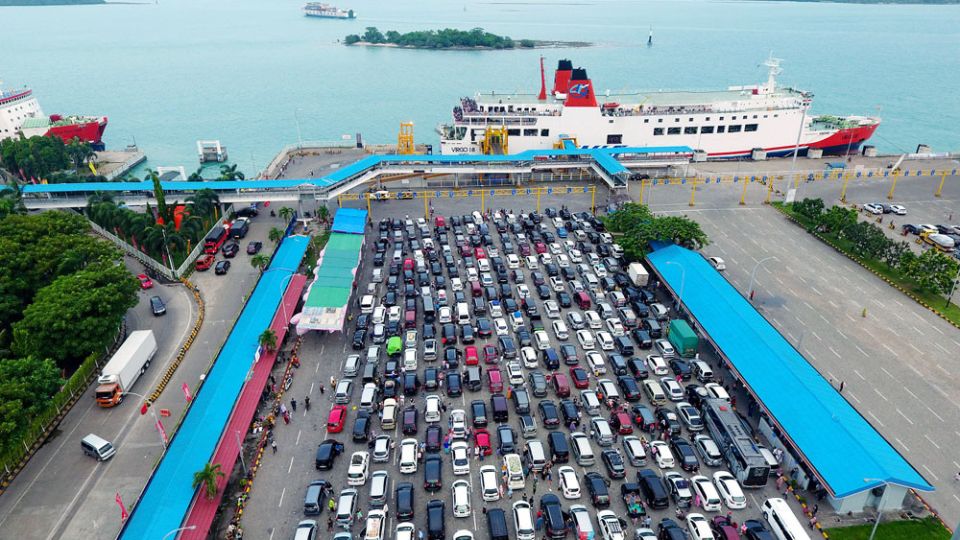September 30, 2022
JAKARTA – Ship operators under the River, Lake and Water Transportation Operators Association (Gapasdap) have announced that they will scale back ferry services on several major routes to cut down losses as the Transportation Ministry has not yet implemented a new pricing scheme following a significant fuel price hike earlier this month.
Gapasdap tariff commission head Rakhmatika Ardianto said that the operators would reduce trips on the Merak-Bakauheni route, which connects Java and Sumatra Islands, the Ketapang-Gilimanuk route connecting Bali and Java Islands, the Bajoe-Kolaka route, which connects South Sulawesi to Southeast Sulawesi, the Lembar-Padangbai route connecting Lombok and Bali Islands and the Tanjung Kalian-Tanjung Api-api route connecting Sumatra and Bangka Belitung Islands.
“For example, on the Ketapang-Gilimanuk route, we will scale back services from eight trips to five trips a day per ship. Each ferry will have a longer docking time, up to 1.5 hours from the usual 45 minutes. So, it will take passengers a total of 2.5 hours to cross from Java to Bali Islands and vice versa. Usually it takes only 1.5 hours,” Rakhmatika said in Surabaya on Saturday.
There are 48 ships run by 23 operators on the Ketapang-Gilimanuk route and the reduced ferry service is expected to create a hurdle for supply chains in the popular crossing route and even across the country.
The prices of subsidized and a number of unsubsidized fuels were raised by the government by around 30 percent on Sept. 3 due to the heavy burden on the state budget, as oil prices were increasing higher than projected.
Following strong demands to set up a new pricing scheme from ship operators, Transportation Minister Budi Karya Sumadi issued a decree No.172/2022 on the adjustment of cross-provincial ferry trips pricing on Sept. 15, allowing an 11.9 percent tariff hike in 23 routes across the country.
The ministerial decree was set to take effect three days after its issuance, but it has not yet been implemented until now.
Rakhmatika said that operators had been complaining of the sluggish adjustment to the ferry pricing and on Friday hundreds of ferry company employees in at least six major ports took to the streets urging the Transportation Ministry to implement the new tariff immediately.
Struggling business
According to Rakhmatika many ferry operators were struggling to keep their businesses afloat, especially following the introduction of the 2018 tariff scheme by the government, which he claimed did not cover 100 percent of the vessel operating cost.
“The ferry fares that were set by the government only covered roughly 64.6 percent of the ship operating cost. As a result, many ship operators are struggling to maintain their business and many have gone bankrupt,” he said.
The loss was exacerbated by the fact that currently, the average passenger occupancy rate for each operator hovered at only 25-30 percent.
Rakhmatika argued that the low ferry fares might threaten the safety of the passengers, as operators were forced to reduce maintenance costs to cover their losses.
Gapasdap has previously demanded the Transportation Ministry increase ferry fares by at least 43.2 percent, to cover the 35.4 percent of operating costs that are not covered by the 2018 pricing scheme and to account for the 7.8 percent ship operating cost hike following the fuel price increase earlier this month.
The ministry had agreed to implement the tariff hike gradually, with the first stage of the price increase capped at 11.9 percent. (nal)


